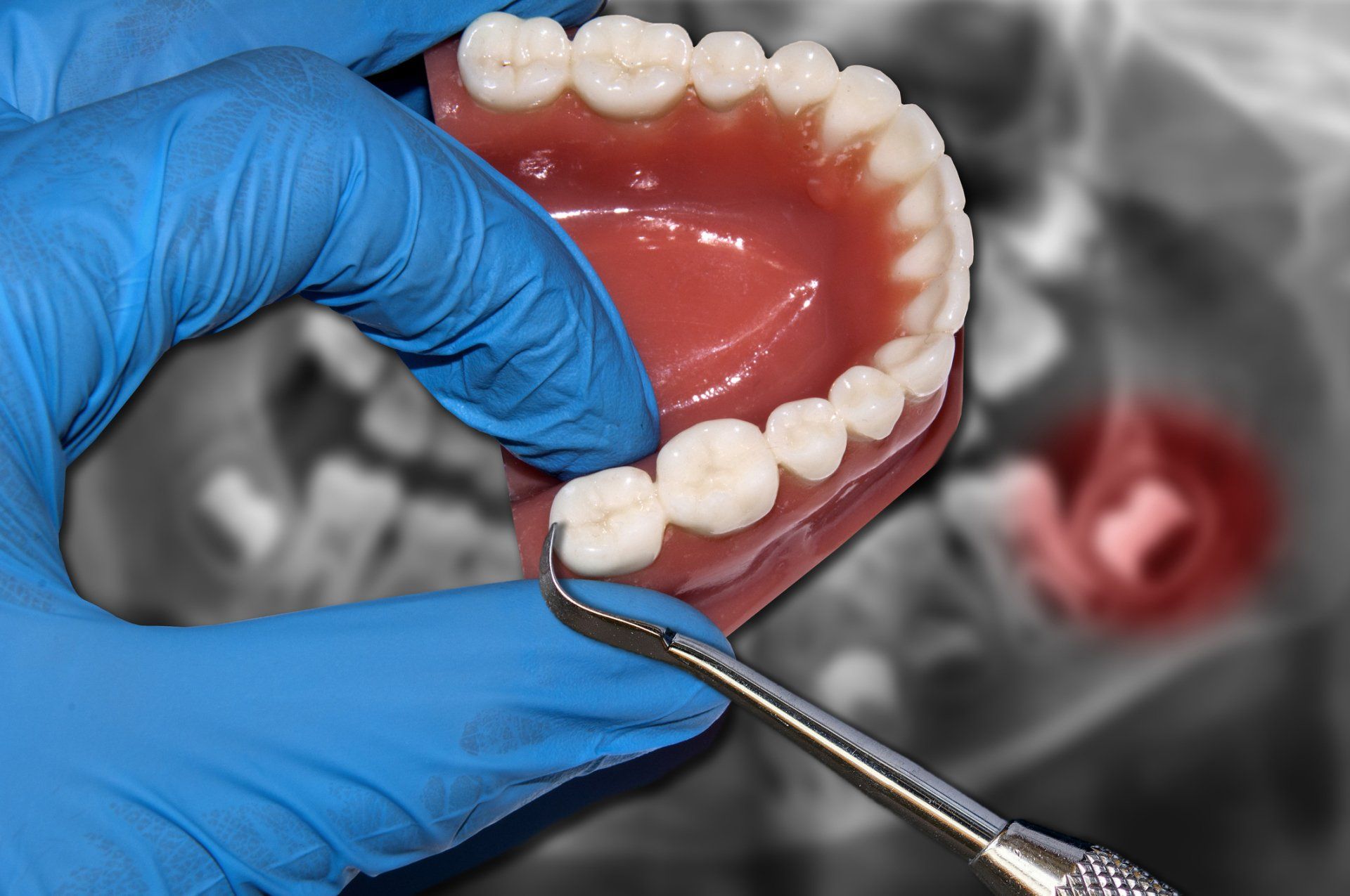Blog Post
Wisdom Teeth Removal: What You Need To Know
- By websitebuilder
- •
- 23 Jul, 2019

Wisdom teeth are the third molars in the back of the mouth. You may believe they have to be removed. However, wisdom teeth removal is not always necessary. Here are some things to think about before you move forward with removing your wisdom teeth.
What Are Wisdom Teeth?
As previously mentioned, wisdom teeth are molars in the back of your mouth on the upper and lower jaw. These teeth come in last, usually in later adolescence to early adulthood. They are referred to as wisdom teeth due to when they erupt.
You may keep your wisdom teeth, while others may choose to have the teeth removed. You can have the teeth removed before or after they erupt through the gums.
You may keep your wisdom teeth, while others may choose to have the teeth removed. You can have the teeth removed before or after they erupt through the gums.
What Are Some Problems Caused by Wisdom Teeth?
For some people, the wisdom teeth cannot grow in due to the size of the mouth. Additionally, when wisdom teeth grow through the gums, they sometimes come in at different angles.
Wisdom teeth can also cause issues if they stay completely inside the gums and never erupt. This means the teeth are impacted and can cause pain and infection. A cyst can form on the gum which can damage the jaw bone and the other teeth in the area. The infection can damage the gums as well.
Wisdom teeth can also partially erupt through the gums. A partial eruption makes proper cleaning of the teeth more difficult. This results in excess bacteria growth and increased decay.
The teeth also cause other teeth in the area to become crowded.
When wisdom teeth do not have enough room to come through, they can also cause your other teeth to shift, which results in crooked teeth. If you have invested in orthodontia to straighten your teeth, wisdom teeth can cause damage to the alignment.
Wisdom teeth can also cause issues if they stay completely inside the gums and never erupt. This means the teeth are impacted and can cause pain and infection. A cyst can form on the gum which can damage the jaw bone and the other teeth in the area. The infection can damage the gums as well.
Wisdom teeth can also partially erupt through the gums. A partial eruption makes proper cleaning of the teeth more difficult. This results in excess bacteria growth and increased decay.
The teeth also cause other teeth in the area to become crowded.
When wisdom teeth do not have enough room to come through, they can also cause your other teeth to shift, which results in crooked teeth. If you have invested in orthodontia to straighten your teeth, wisdom teeth can cause damage to the alignment.
Are There Risks with Having Wisdom Teeth Removed?
Although wisdom teeth removal can be beneficial, there are some risks associated with doing so. You could have some swelling and pain along with dry socket in the location of the tooth. You could also suffer from excessive bleeding or gums that are slow to heal. The removal can also damage any surrounding bridges you have as well as the roots of other teeth.
If a wisdom tooth is removed from the top jaw, it could also cause an opening into the sinus cavity. All of these risks are rare, but you should be aware before making a final decision.
If a wisdom tooth is removed from the top jaw, it could also cause an opening into the sinus cavity. All of these risks are rare, but you should be aware before making a final decision.
When Should You Have Wisdom Teeth Removed?
Ideally, your dentist should begin looking at your wisdom teeth as a teenager. As you age, your bones are more brittle, making the process more difficult and painful. When you have your exam, the dentist will check to see if you have wisdom teeth and whether or not to remove them. If they should be removed, your dentist will help you develop a plan to move forward.
When Is Wisdom Teeth Removal Unnecessary?
There are some instances in which it is not necessary to have your wisdom teeth removed. If you can reach them to clean the teeth thoroughly, you can leave them in. If the teeth are healthy and free of decay or are fully erupted, you can leave them in as long as they are in the correct position and are in line with your bite.
If you have any questions about wisdom teeth or if you have other dental needs, please contact us at Rabel Family Dental General Dentistry. We offer general dentistry procedures from Baker to Port Allen. Please contact us if you would like to schedule an appointment. Call us today!
If you have any questions about wisdom teeth or if you have other dental needs, please contact us at Rabel Family Dental General Dentistry. We offer general dentistry procedures from Baker to Port Allen. Please contact us if you would like to schedule an appointment. Call us today!
CONTACT INFORMATION
3114 Groom Road Baker, LA 70714
Phone:
225-775-0160
Email:
drbrett@lakeshorecapital.biz
Share
Tweet
Share
Mail
PAYMENT OPTIONS






CareCredit
BUSINESS HOURS
- Mon - Fri
- -
- Saturday
- -
- Sunday
- Closed
*Our phones are monitored 24/7
Interest-Free Payment Plans
Content, including images, displayed on this website is protected by copyright laws. Downloading, republication, retransmission or reproduction of content on this website is strictly prohibited. Terms of Use
| Privacy Policy
We partner with a third party ad network to either display advertising on our Web site or to manage our advertising on other sites. Our ad network partner uses cookies and Web beacons to collect non-personally identifiable information about your activities on this and other Web sites to provide you targeted advertising based upon your interests. If you wish to not have this information used for the purpose of serving you targeted ads, you may opt-out by clicking here . Please note this does not opt you out of being served advertising. You will continue to receive generic ads.
